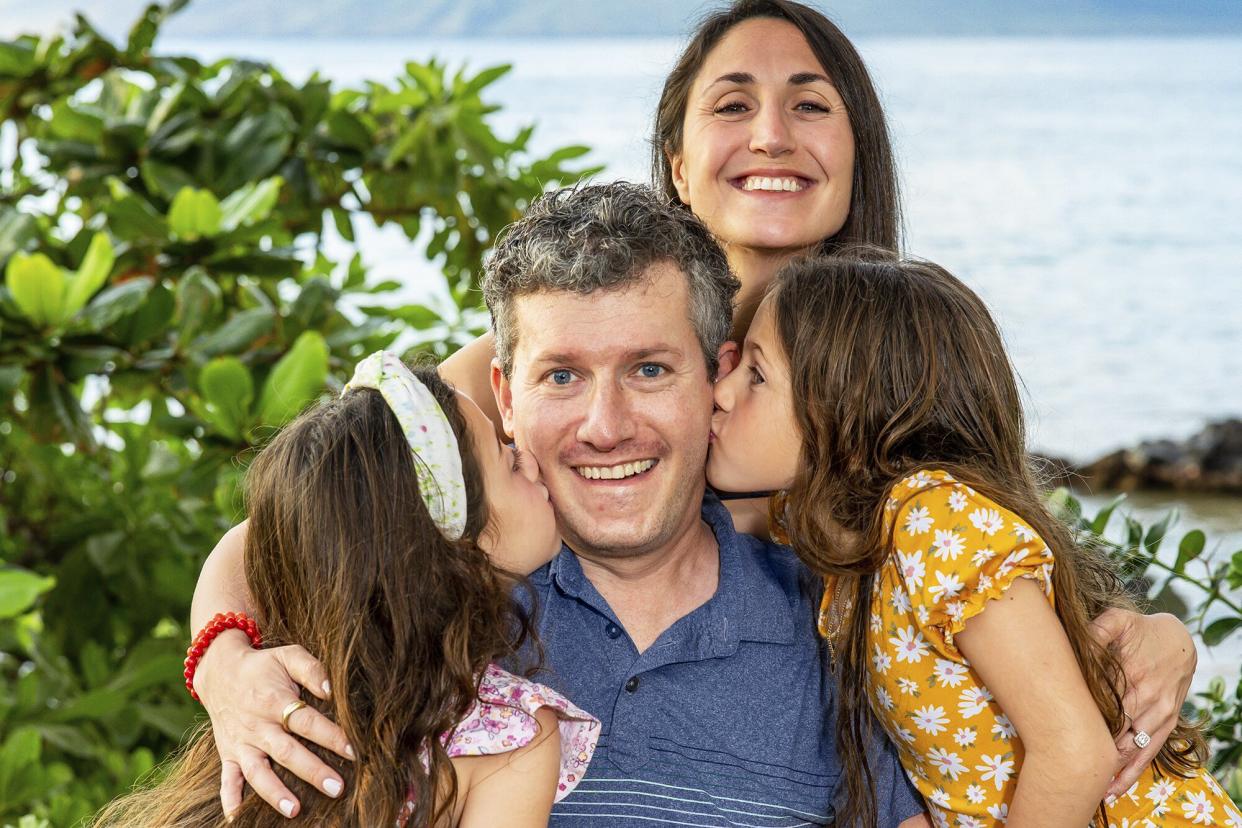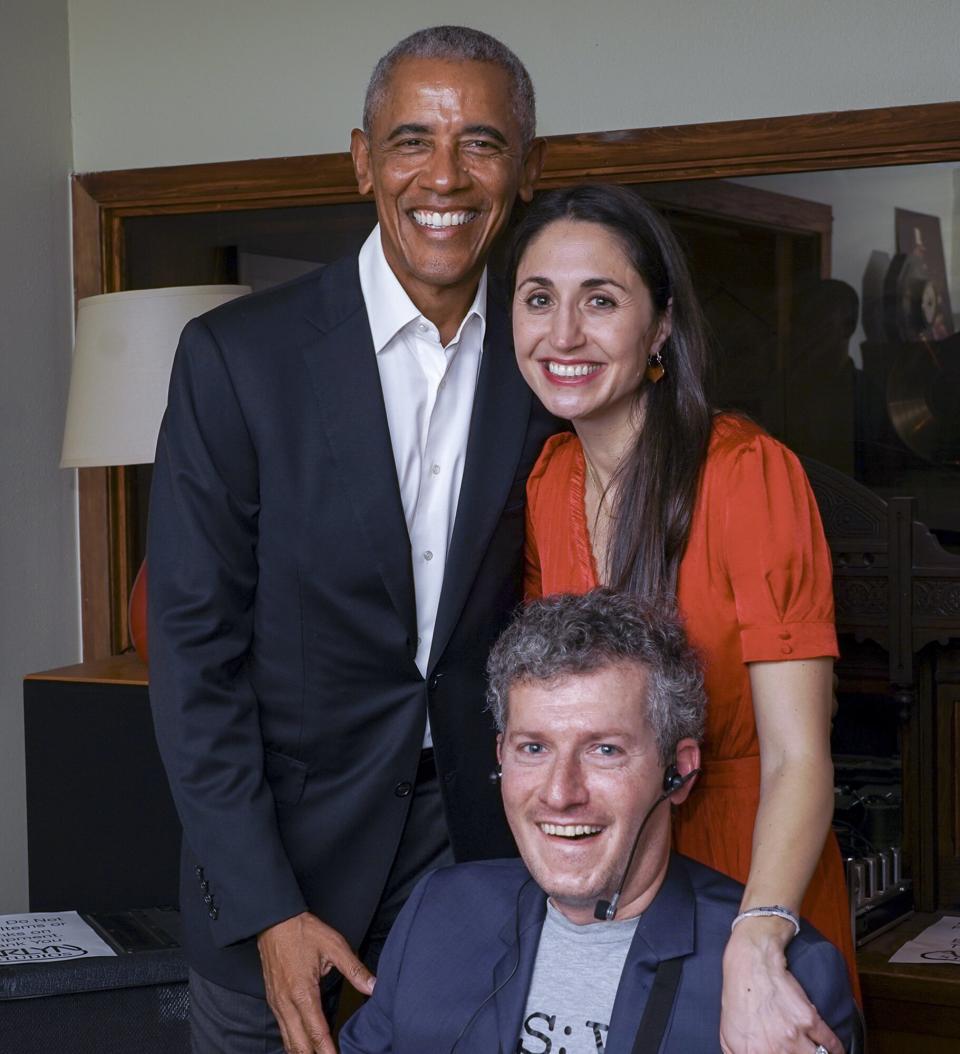Young Father Defying the Odds of His ALS Diagnosis Says the Disease Is 'No Longer Hopeless'

Michael Enovijas/Pacific Dream Photography Brian Wallach with his wife Sandra Abrevaya and their daughters in December 2022
Six months after he was given six months to live, Brian Wallach decided to fight.
Diagnosed with ALS in August of 2017 at just 37 years old, the father of two and former White House counsel for President Barack Obama didn't believe his progressive neurodegenerative disease had to be a death sentence.
"I have real hope," the 42-year-old says in this week's issue of PEOPLE. "Based on the science and the amazing progress we're making today, ALS is no longer hopeless."
That progress comes in great part from Wallach and his wife Sandra Abrevaya, 42, who have spent the last five years working with Congress, pharmaceutical companies, the FDA and National Institutes of Health to expand access to treatments for people with neurodegenerative diseases. Their tireless efforts are detailed in the new documentary No Ordinary Campaign, which follows their lobbying work around D.C. and their day-to-day of living with ALS at home outside Chicago with their daughters, now 5 and 7.
The film, directed by friend Christopher Burke, culminates in President Joe Biden signing the 2021 Accelerating Access to Critical Therapies for ALS Act, co-written by Wallach, which expands drug access for people with ALS, in addition to unlocking $500 million in research funding.
"This is a disease where families know what the natural conclusion is without the intervention of therapies," says Abrevaya. "And if one gives you an extra 10 months, then another an extra six months, we're buying ourselves time that's going to help us be here for when a curative therapy arrives."
When Katie Couric first heard about Wallach's work, she reached out to him asking how she could help, ultimately coming on board as an executive producer of their documentary, alongside Everybody Loves Raymond creator Phil Rosenthal, who lost his mother to ALS. A chance meeting with Rachel Platten later prompted her to donate the rights to her hit "Fight Song" to the film, offering an apt anthem.
Never miss a story — sign up for PEOPLE's free daily newsletter to stay up-to-date on the best of what PEOPLE has to offer, from juicy celebrity news to compelling human interest stories.
"What surprised me is how after watching the documentary, almost everyone's first question is, 'How can I help?' " says Wallach. The impact is "beyond what I could have ever imagined — I can see and feel how much has changed, and I know we are not that far away from transforming ALS from fatal to chronic. And that's worth fighting for every day."
No Ordinary Campaign is currently making its way through the festival circuit, most recently premiering at SXSW in Austin, where the Obama Foundation threw Wallach and Abrevaya a toast attended by their former boss, Barack Obama. The couple met while working on his presidential campaign in 2008, and Obama appears in the documentary.

Courtesy The Obama Foundation Barack Obama with No Ordinary Campaign's Brian Wallach and Sandra Abrevaya at an Obama Foundation alumni event to celebrate the SXSW premiere of the documentary
Sharing how "incredibly proud and inspired" he is by the couple's work, the former president added, "as long as I know that there are folks out here like the two of you, and so many of you in the audience, I continue to be hopeful about the country. And I feel hopeful about the world."
RELATED: Barack Obama Celebrates Release of Moving New ALS Documentary with Former Staffers at SXSW
As they work to promote their film, Wallach and Abrevaya also continue to run their non-profit I AM ALS, which supports families facing the disease, and their newer company Synapticure, which improves access to care for people living with ALS and other neurodegenerative diseases.
"There are moments when I've thought, 'We've done a lot and it is time to step aside so someone else can be the face of this fight,' " says Wallach. "But then I think about the friends I had in the beginning of the fight and how many of them have passed away, fighting until their last day. So I feel an obligation to keep fighting for them and for their families, because this has gone on for long enough. It is time to have the first ALS survivor."
For more with Wallach and Abrevaya, pick up the latest issue of PEOPLE, on newsstands now.

